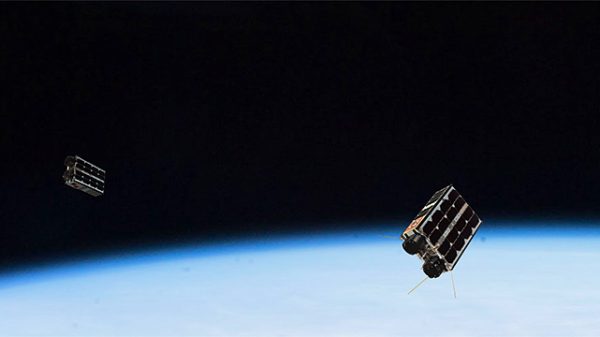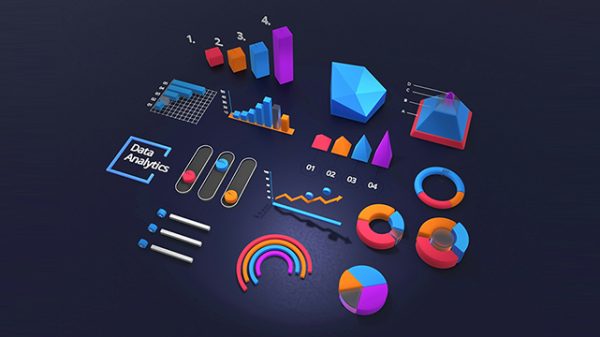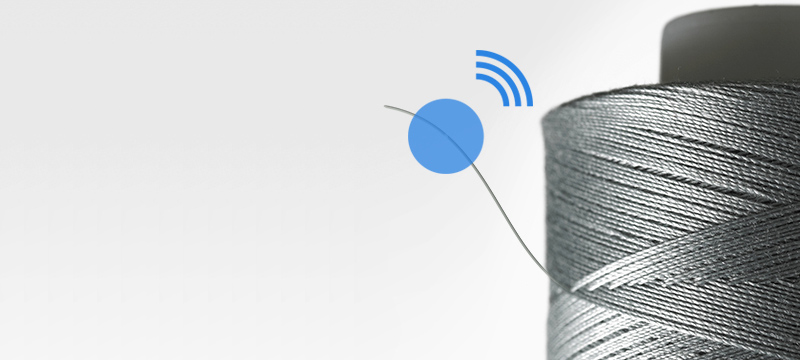Primo1D, a world leader in smart embedded Radio Frequency Identification (RFID) tags, today announced a paradigm shift in the way textiles are recycled.
By using Primo1D’s RFID E-Thread embedded into Decathlon garments, the company reached a major milestone to demonstrate that its RFID technology is fully compliant with textile recycling industrial processes, to produce a high-quality recycled textile fiber. This result paves the way to efficient large-scale recycling process of end-of-life garments and reuse of recycled textiles for second-life applications.
One of the concerns in using traditional electronic components was that they introduce impurities to the recycled textile after being spun around and heated as garments are processed. To verify that this was not the case with E-Thread, CETI, an independent applied research institute was recruited to run tests on Decathlon cotton T-Shirts incorporating Primo1D‘s RFID threads. The study has confirmed that the quality of the fabric tagged with Primo1D’s RFID E-Thread complies with the standards of the textile industry after recycling.
The collaboration with Decathlon, a worldwide major player in the sporting goods industry, provides expertise on textile manufacturing, circular economy, and sustainable business models.
“The circular economic model is a major part of Decathlon’s 2020-2026 transition plan, in which sustainability takes top priority. Our partnership will bring textile recycling to another level,” said Jérôme Lemay, RFID Industrial Director of Decathlon.
“We are fully confident that embedded RFID technology will boost our sustainable business models, as part of our global digital strategy, and we are excited to work with Primo1D.”
“We are proud to collaborate with Decathlon, one of the world’s largest sporting goods retailers with a science-based sustainable development strategy,” said Emmanuel Arène, CEO and Founder of Primo1D. “This major step positions our E-Thread RFID technology as a cornerstone of the circular economy in textile mass distribution. We’ll keep collaborating with all stakeholders in the textile recycling ecosystem and provide a relevant solution to increase the use of more recycled raw material.”
Primo1D’s E-Thread tag is both flexible and durable, enabling seamless integration during garment manufacturing to allow clothing to be identified and traced throughout its lifecycle. Real-time and high-speed identification of textile components will allow third parties to develop solutions including automatic sorting. Using an RFID reader, companies involved in recycling can use such solutions to automatically retrieve the identity of a garment and look up cloud-based data on the origin and composition of the fabrics.
The textile and apparel industry is one of the largest sectors in the world—one that unfortunately generates a lot of waste. According to EU Strategy for Sustainable and Circular Textiles, about 5.8 million tons of textiles are discarded every year in the EU, and every second somewhere in the world, a truckload of textiles is landfilled or incinerated. And according to the recent National Institute of Standards and Technology (NIST) publication “Facilitating a Circular Economy for Textiles”, in the United States, only about 15% of clothes and other textiles get reused or recycled.
Today in Europe and around the world, recycling textiles is becoming a necessity. Under the Extended Producer Responsibility (EPR) environmental EU policy regulations, liable companies must mitigate the environmental impacts of their products throughout the entire product life cycle. The new regulations encourage distributors to find solutions for reuse. One of the biggest challenges for all players in the sector is identifying and tracing materials so they can be separated quickly—and in large volumes—at an acceptable cost.
Almost 30 billion RAIN RFID tag integrated circuits (IC) were sold worldwide in 2021 resulting in a 36% increase over 2020 sales according to research released by the RAIN Alliance. The RAIN RFID Market Research Report from VDC Research predicts that IC shipments will scale to 88.5 billion by 2028, a CAGR of 25.1%. Supply chain upgrades and the use of more sustainable solutions is helping to drive an increase in the adoption of RAIN RFID solutions.
The post Primo1D Teams Up with Decathlon to Bring Garment Tracing to the Recycling Sector appeared first on IoT Business News.























